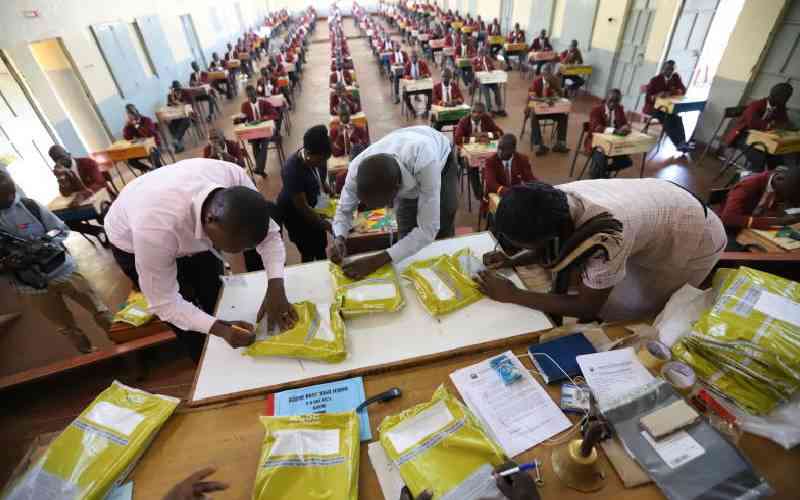×
The Standard e-Paper
Stay Informed, Even Offline

Invigilators at Kisumu Boys High School verify exam security seals before the start of KCSE mathematics paper. [File, Standard]
Testing of students is an excellent strategy to keep students on track and also to assess learning. However, their frequent testing is counterproductive. It doesn't follow that the more tests learners take, the better prepared they are to sit for the national examinations.